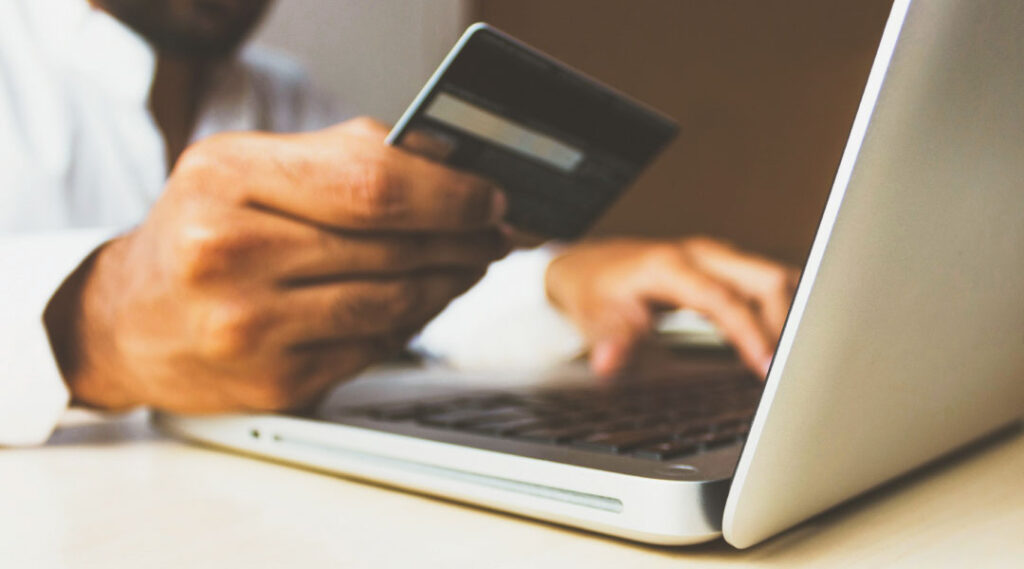Shop online often? – Beware of Credit & Debit Card Frauds

Shopping is now made so much easier, with so many e-commerce websites at your fingertips. You can sit/lie on your couch and browse products comfortably without even having to go to a shop or a mall. Almost everything, right from groceries to electronics can be shortly delivered through online banking.
But, these days, you might have noticed that many e-commerce sites are promoting mobile apps like Flipkart, Myntra, BookMyShow, etc. The good part is that they allow you to make payment over mobile apps through your credit card or debit card anywhere and anytime. However, the downside is if your collected data gets compromised, you could lose a lot more than just money – you could end up compromising your entire digital identity.
Recently, hackers breached eBay e-commerce website, compromising over 145 million accounts. The second-biggest breach in history at a U.S. company, based on the number of records obtained by the hackers. According, to the RBI, 6,800 cases of bank fraud involving a whooping ₹71,500 crores were reported in 2018-2019. That’s a hefty sum of money and a lot of scams. Amidst so many cyber frauds occurring frequently, it is safe to believe that the internet isn’t a safe place anymore. Your data can be hacked or breached anytime and anywhere, and it is better to take precautionary measures rather than exposing yourself to credit fraud or scams.
How to protect yourself from credit card frauds associated with your online activity?
The RBI Consumer Protection Policy offers you limited liability for unauthorized electronic transactions. If you report a missing debit card or credit card before someone uses it, you’re not responsible for unauthorized transactions. But if someone utilizes your card before you report it missing, your liability can hold significant, depending on when you report it. Prevention is always better than cure. Taking specific steps, that you can take to help protect yourself against credit card and other types of payment card frauds.
- Use secured websites only for shopping online. Websites that are Secure Sockets Layer (SSL)-certified are safe to browse. The padlock symbol next to the browser’s URL box is a sign of verified sites.
- Make sure that the websites you access uses the ‘https’ protocol instead of ‘HTTP,’ where ’s’ stands for ‘secure.’
- Install an Antivirus software that protects your digital devices from viruses and malware.
- Avoid using public Wi-Fi networks or free Wi-Fi networks, as they are easy targets for hackers.
- Log out from all social media sites and online accounts to ensure data security. Also, avoid storing confidential passwords on your mobile phones.
- Be super-cautious when responding to special investment offers, primarily through unsolicited email or text messages.
- Never share your OTP for financial or non-financial accounts with anyone over the phone or text.
- Refrain clicking on any spam or fake websites. These are easy targets for hackers to set traps to access your systems and track your keyboard or click-through activity to get your bank or card details.
- Avoid using debit cards for online shopping. Instead purchase items online using your credit card. You can contradict the credits if something goes wrong.
- Change your passwords and PIN often to reduce the probability of identity theft.
- Sign up for a comprehensive Digital Identity Protection Service like Cyberior to protect yourself from cyber frauds.
You can do everything possible to protect your data from falling into the wrong hands. But in the never-ending chain of retailers, credit card processing companies, and other entities, that have access to your card, and data can expose you to weak links.
Your safest bet? Stay alert. Monitor your credit cards and bank statements often for unusual transactions. When you spot them, notify your bank immediately unless, of course, the “unusual transaction” is just your teenage son ordering latest games.
